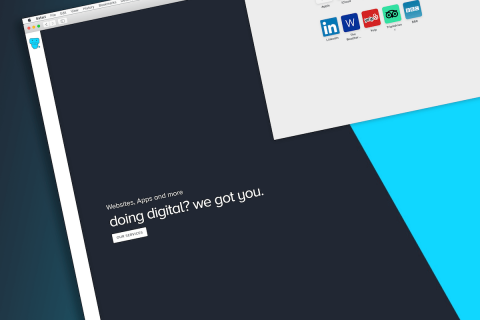Top 10 tips for choosing the right domain name
Choosing a domain name can be the first vital step in establishing your brand or business online. Your domain name is the first thing people will see when seeing you online, so you want to choose a domain name that is easy to find, promote and one that matches your brand.
Finding the right domain name is more of an art than science but here are some general tips to help you pick out a name that's right for you.
1. Simplicity
Your domain should be easy to type and easy to understand. Try to avoid complicated words, numbers, and hyphens. Think about how people will type in your domain if they heard your advert on the radio or if you gave them your address over the phone.
2. Length
Shorter domain names are easier to remember and are less likely to be typed incorrectly. Try to keep your domain to two or three words maximum.
3. Brand name or business name
Try to use your brand or business name within your domain name. Using your brand name makes it much easier to stand out and increase traffic to your website. Make sure you aren't using any existing brand or trademark - doing a quick Google search and checking on https://www.gov.uk/search-for-trademark is a good start.
4. Keywords
Including keywords that people use when searching for your services is a great way of increasing traffic and ranking on search engines. A great example of this is diy.com for B&Q. You could include keywords related to your product (e.g. "coffee" or "barber") or you could include your location (e.g. "London") to target local customers.
5. Something is better than nothing
It's an easy trap to fall into - not registering a domain name until its "perfect". However, you shouldn't let choosing a great domain stop you launching your business or idea when a good domain will suffice.
6. Extensions
There are many domain extensions to choose from including .com, .co.uk, .net. Some of these have specific uses and some have limitations so it's important to choose the right one for you. The most popular extension is .com as this is a default for many people when typing in a domain.
Typical domain extensions:
- .com - Useful for any type of website.
- .co.uk - Used for any type of UK based website.
- .info - Information websites.
- .net - Technical or internet related sites.
- .org - Non-commercial organisations and nonprofits.
- .biz - Business, commercial and e-commerce.
- .me - Blogs, resumes and personal websites.
There are also new domain types such as .cleaning (for example, one of our clients Elk Cleaning Services uses elk.cleaning) and more unusual domain extensions allow you to be creative such as Bitly with their domain - bit.ly.
7. Cover your bases
We recommend registering multiple domain extensions to protect your brand. You may also want to register misspelled versions of your domain in case your visitors mistype your address.
8. Avoid unusual words and characters
We mentioned above that its best to avoid numbers and hyphens in your domain but its also best to avoid words that can be spelled in different ways e.g. "too", "wait" or "way". It's also best to avoid using letters instead of words such as "u" in place of "you"
9. Try it out
You've got an incredible domain name idea? Great! Try it out with close friends and family to check how it sounds to them, whether it makes sense and how appealing it is.
10. Don't wait!
Because domains are inexpensive, they sell quickly. If you've got a great idea, register your domain now to protect your new brand.
Ready to find your new domain name? Start searching now with Bloobo - our domain finder tool will even suggest some for you if your first choice isn't available. Try it here.











Leave a comment